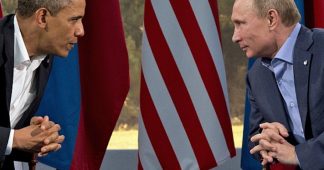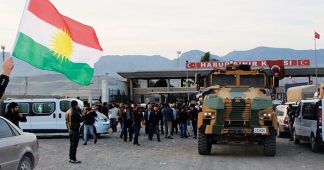France and the United States
Following the July 14, 2016, massacre in Nice, French President François Hollande once again extended for three months a state of emergency that was to have ended on July 26. An initial, twelve-day state of emergency had been declared after the Paris attacks and extended for three months by a law of November 2015. Still another three-month extension was added and came to an end on May 26, only to be extended for two additional months. Despite the obvious ineffectiveness of such a measure, which did nothing to prevent the July 14 massacre, it has been extended yet again, through January 2017. In addition, in November 2016, the prime minister and president announced one after another that the state of emergency would be prolonged “at least” until the presidential election on May 7. This normalization of the “state of exception” has provoked only a muted public reaction. France has thus entered into a permanent state of emergency. This choice is not the result of exceptional events to which the country must respond, but rather expresses an intention to change the political system, as shown by the move to constitutionalize the state of emergency.
France: “Civilian Rule in Crisis Mode”
Before President Hollande announced its withdrawal, the “draft constitutional law for protection of the nation,” presented to the National Assembly in December 2015, intended to introduce two changes to the French Constitution: the insertion of Article 36-1, concerning the state of emergency, and a revision to Article 34 that would make it possible to revoke the citizenship of French nationals convicted of terrorism.1
Although the French government has provisionally given up its plan of introducing the state of emergency into the Constitution, following the lack of agreement between the National Assembly and the Senate on the question of deprivation of citizenship, the proposed legislation is important to analyze. This is not only because the matter was simply postponed, but above all because of the significance of the reform, i.e., a nation-state’s renouncement of its sovereignty.
Article 36-1 on the state of emergency would have been inserted after Article 36, which specifies the conditions for a “state of siege” as a response to a serious crisis, war, or armed insurrection. The state of siege authorizes the transfer of police powers to the army as well as the creation of military courts. Article 16 of the Constitution allows the President of the Republic to claim “exceptional powers” when facing a “serious and immediate” threat to the “institutions of the Republic, the independence of the Nation, the integrity of its territory, or the execution of its international commitments.” This was implemented only once, during the “generals’ putsch” of the Algerian War. Full powers had then been granted to de Gaulle for five months.
President Hollande has lamented that these two articles are not “appropriate for the situation that we face,” which he describes as the “terrorism of war.” Since “the regular operation of public powers has not been interrupted and it is not possible to transfer such powers to military authorities,” the state of siege, he argues, is not applicable.2 Likewise, these full powers, by nature temporary, cannot meet the needs of a long-term war against terrorism. Consequently, in order to act “against the terrorism of war,” Hollande considers it necessary to establish what he calls “civilian rule in crisis mode” and include this new power in the Constitution.3
A Constitutional System Useful for Empire
This “other constitutional system” is tantamount to a political transformation. The “powers of exception” are usually named as such, because they are supposed to be used only rarely and are excessive. Under “civilian rule in crisis mode,” that would no longer be the case; they would become part of everyday life. Thus, the new prerogatives could no longer truly be considered powers of exception, because they are part of the system maintained by the Constitution. Hollande’s announcement invoking the state of emergency after the Paris attacks takes on particular importance in the context of France’s specific place in the history of the Atlantic Alliance. The politics of independence initiated by General de Gaulle has long since been abandoned; France has been reintegrated into the NATO general command. What is more, President Hollande has authorized the stationing of alliance troops on French territory. The proposed constitutionalization of the state of emergency is concomitant with this decision. France’s intention to establish “a constitutional regime of crisis” is part of the new strategy developed by NATO after the disbandment of the Warsaw Bloc to move from a purely military role to take on a much larger mission: “the management of crises.” By combining war and politics, the Alliance has, in effect, become a general provider of “international security” whose interventions run from “crisis and risk management” to “the fight against terrorism” and “promotion of democracy.” Terrorism becomes an all-purpose crisis, an unending war against a changing enemy that is found both inside and outside the borders of a nation. François Hollande’s constitutional regime of crisis joins with this global strategy.4
The Political Stakes of Constitutionalization
A government’s choice to include or exclude the state of emergency in the Constitution is above all a political decision, one that reveals the place this state occupies in the imperial order. When the French president announces his intention to introduce the state of emergency into the Constitution, this choice is not motivated by any concern for legal consistency, contrary to what he asserts. The choice is directly political. It reveals the intention of a government to renounce its sovereign authority to an international order in which it is in a subordinate position. Emergency powers have become an implicit prerequisite for junior membership in this order: in their bid to join NATO, many of the former members of the Warsaw Bloc, following its disbandment, included the principle of a state of emergency in their basic law prior to becoming members of the Atlantic Alliance at the end of the 1990s.5
In contrast, the U.S. government, following the 9/11 attacks, expressed no intention of reforming its Constitution. It was left free of any procedure for exception or emergency. This does not mean that the United States has remained a more democratic country than France. Attacks against privacy, civil rights, and, above all, habeas corpus have proven even more virulent in the United States than in Europe. The act of preserving the Constitution, then, is not the result of any concern by the U.S. government to retain the democratic order, but an assertion of its own privileged place in organizing the global “fight against terrorism,” as commander and decision-maker. Moreover, Great Britain, which likes to think of itself as an ally of the United States and not its dominated partner, has chosen to treat the question of a state of emergency at the level of the law and leave its (unwritten) Constitution unchanged. In Germany, there is no legislation establishing a specific system analogous to the state of emergency as it exists in French law. It is Germany around which the European Union was constructed: it organizes the EU’s economic and monetary policy, and has strongly influenced international police cooperation, including the creation of Europol.
The U.S. “War” Against Terrorism
The U.S. Constitution makes no mention of “exceptional circumstances.” Since 9/11, the threat of terrorism has been considered equivalent to a “state of war,” so that exceptional powers could be transferred to the President of the United States, thus allowing for a set of measures exceptional in relation to common law. Congress adopted a resolution on September 14, 2001, stipulating: “the President is authorized to use all necessary and appropriate force against those nations, organizations, or persons he determines planned, authorized, committed, or aided the terrorist attacks that occurred on September 11, 2001.”6 The broad interpretation of the law by the executive branch has provided it with unlimited authority in both space and time to act not only against those responsible for 9/11, but any potential aggressor or designated enemy. The authorization itself includes a preamble: “the President has authority under the Constitution to take action to deter and prevent acts of international terrorism against the United States.” George W. Bush routinely cited this line to justify violations of the constitutional freedoms of U.S. citizens.
President Obama used the same interpretation during the promulgation of the National Defense Authorization Act (NDAA), which he signed in December 2011.7 Obama did not consider the new law an expansion of presidential power, since the possibility of suppressing habeas corpus and other civil rights was, in his estimation, already contained in the authorization granted by Congress in 2001 to use force against the perpetrators of the 9/11 attacks. Both the Bush and Obama administrations have treated this law as equivalent to a declaration of war, like those passed during the Second World War. The field of application, however, has become much wider. The interpretation made by the two administrations eliminates any distinction between internal and external, thereby allowing for the use of force not only against other nations, but also against organizations or individuals, including U.S. citizens.
From the “War on Terrorism” to the “Terrorism of War”
In its elimination of the distinction between crime and war, criminal law and the laws of war, the “terrorism of war” announced by Hollande last year appears quite similar to George Bush’s “war on terror.” However, the two differ in one fundamental aspect: sovereignty. The “war on terror,” as used by the U.S. president, explicitly refers to a decision to go to war against the al-Qaeda organization. It expresses a relation of exteriority, a decision made in the face of an event designated as exceptional. In the case of France, however, the idea of the “terrorism of war” is not the result of a declaration of war, but only defines the nature of the terrorism the government claims it must confront. In order to do this, it creates a new type of political system: “civilian rule in crisis mode.” In the United States, the “war against terrorism” does not imply a change in the system, since the special powers are “temporarily” granted to the president by Congress as part of a specific campaign against those “responsible” for the 9/11 attacks. The executive branch has exploited a sweeping interpretation of the powers granted to it in order to lead the country into a “global war against terrorism.”
This is not the case for France. The insertion of the state of emergency into the Constitution gives a legal, textual basis to a reorganization of state power. The change in relations between citizens and the government is inscribed in the reversal of the very function of the Constitution itself: its purpose is no longer to guarantee rights and establish limits to the exercise of power, but, on the contrary, to decree punitive measures, that is, to curtail civil freedoms and abolish the guarantees for those freedoms in the face of the arbitrary exercise of state power.











